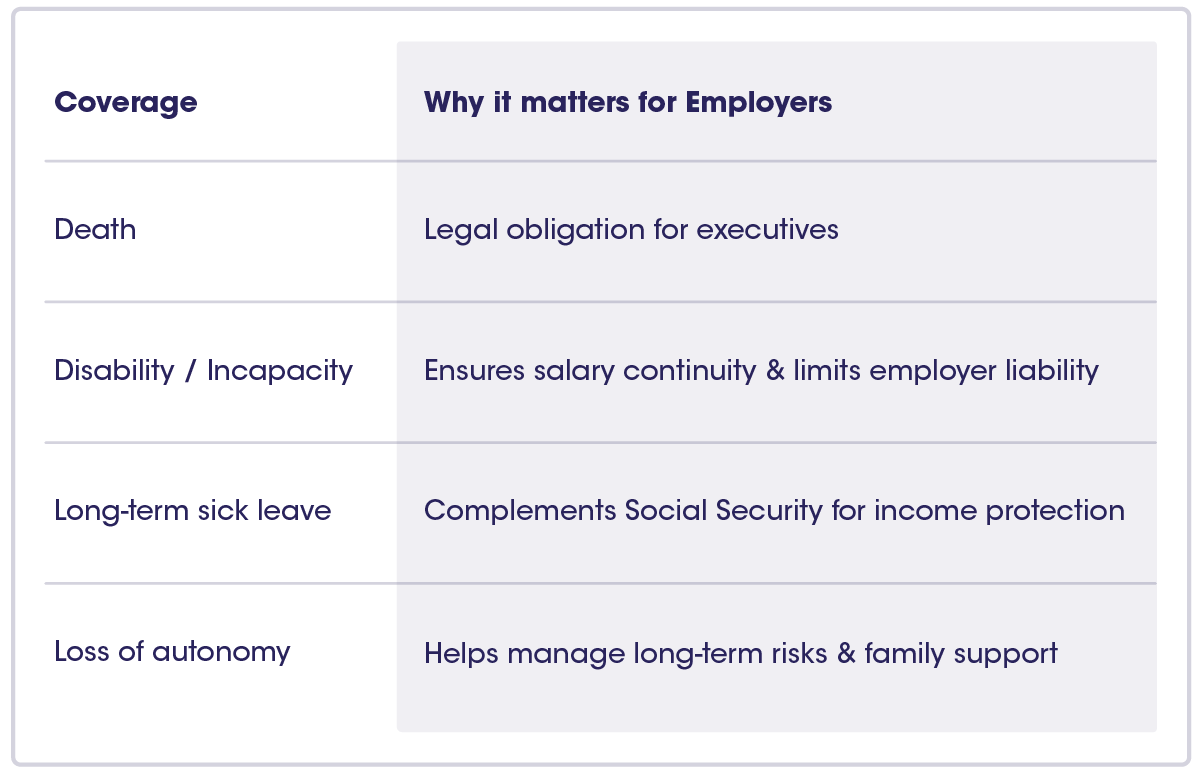What many foreign employers overlook is the French concept of prévoyance, a separate but equally crucial pillar of social protection.

In France, prévoyance provides insurance for major life risks that go beyond everyday healthcare. It complements the basic coverage offered by Social Security, ensuring financial stability when serious events occur.
In short: Prévoyance protects employees and their families by maintaining income and dignity when life takes a serious turn.

Prévoyance plans cover part of income replacement during long-term illness or incapacity, reducing absenteeism risks and legal exposure.
Strong social protection benefits are expected in the French job market. Offering solid prévoyance coverage helps:
Employer contributions to prévoyance are partially exempt from social charges (within legal ceilings), making it a cost-effective benefit.

1. Check collective agreement obligations (CCN) in your sector. Some mandate specific coverage levels.
2. Select a group prévoyance plan (via insurer or mutual), covering at minimum death/disability, ideally also sick leave and loss of autonomy.
3. Formalise implementation through a collective agreement or unilateral employer decision.
4. Contribute at least the mandatory minimum (e.g., 1.5% of Tranche A salary for executive death insurance).
5. Report contributions in payroll and monthly DSN (Déclaration Sociale Nominative).



Prévoyance in France is not optional—it’s both a legal requirement (for executives) and a strategic HR tool for all employers.